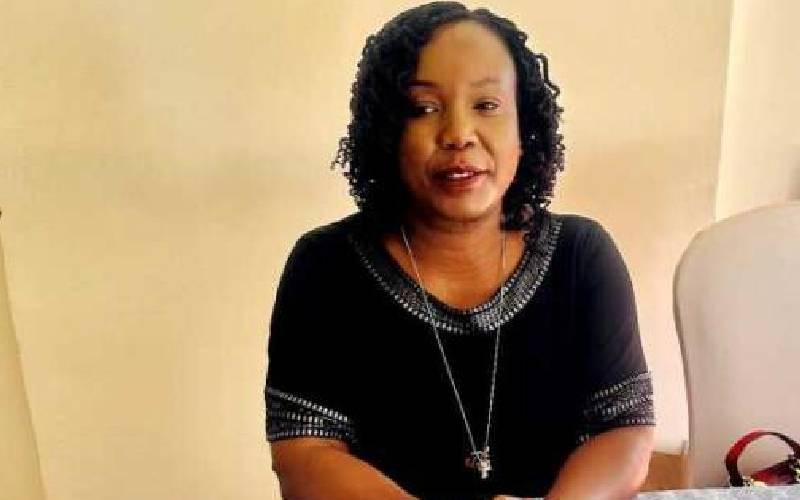By Stephen Makabila
The Independent Electoral and Boundary Commission could register 20.4 million voters next year, going by an exit report by its predecessor.
Although the Interim Independent Electoral Commission (IIEC) had managed to register 12.4 million voters in 49 days based on the census result of 2009, its report says more needs to be done to register the more than eight million eligible voters before next year’s elections.
Those unregistered include the estimated two million in the Diaspora as well as Kenyans with special needs.
Their registration could see an additional six million voters compared to the 2007 scenario, where only 14,202,613 were in the defunct Electoral Commission of Kenya’s register.
IEBC chairman Ahmed Issack Hassan, who has also been at the helm of the IIEC, told The Standard On Sunday that the date voter registration will start would be determined by the new commission in its work plan.
"We urge those who do not have ID cards and have reached the voting age to go and get them. When we start registration, we will want those who have not registered to do so promptly," said Hassan.
He also said a comprehensive concept paper had been developed on Diaspora registration and voting. "For a start, we will use our embassies and high commissions. Later, we will review this for better delivery," added Hassan.
Chairman of the Centre for Multi-Party Democracy Justin Muturi, however, says voter registration can only start after delimitation of boundaries for the 80 new constituencies.
The IEBC has already indicated the boundaries would take over six months to realise.
"You cannot register voters when they do not know the electoral units they would fall. Registration is tied to the conclusion of the delimitation," said Muturi.
Voter registration aside, there is unfinished business awaiting the Hassan-led team.
"The IEBC will enact the new electoral laws in line with the Constitution. Further to this, IEBC will create a number of instruments to enact the electoral laws as well as develop internal policies and procedures to ensure compliance with its new operations," reads the exit report presented to Parliament by the out-going IIEC team.
Electoral laws
Hassan, in his forward note, says the IIEC had successfully delivered on most of its mandate.
He, however, says effort was being made to introduce the Financing Bill to regulate expenditure by parties and ensure regulations on electoral laws are put in place.
IIEC had a strategic plan intended to act as a baseline for a five-year plan covering electoral cycle 2013–2017.
"The strategic plan will continue to be an integral part of the commission’s planning, providing high-level guidance on strategic direction and promoting the alignment of all aspects of the commission’s management practices with organisational goals. The focus of the current activities is the period between August 2010 and August 2012. The successful delivery of the scheduled 2012 elections is, therefore, a paramount goal of the plan," reads the report.
To maintain integrity, the report recommends use of technology in the electoral process be enhanced.
While the electronic voter register system will be adopted in future, the report says there is need to implement various reforms to accommodate requirements of the Constitution.
"The system should be improved from one that just reports results to one that reports other important activities and thus qualify as a vote reporting system. These activities include improvements to address reporting requirements from the time of opening the polling station and hourly or bi-hourly reporting of voter turnout," adds the report.
 The Standard Group Plc is a multi-media organization with investments in media
platforms spanning newspaper print operations, television, radio broadcasting,
digital and online services. The Standard Group is recognized as a leading
multi-media house in Kenya with a key influence in matters of national and
international interest.
The Standard Group Plc is a multi-media organization with investments in media
platforms spanning newspaper print operations, television, radio broadcasting,
digital and online services. The Standard Group is recognized as a leading
multi-media house in Kenya with a key influence in matters of national and
international interest.
 The Standard Group Plc is a multi-media organization with investments in media
platforms spanning newspaper print operations, television, radio broadcasting,
digital and online services. The Standard Group is recognized as a leading
multi-media house in Kenya with a key influence in matters of national and
international interest.
The Standard Group Plc is a multi-media organization with investments in media
platforms spanning newspaper print operations, television, radio broadcasting,
digital and online services. The Standard Group is recognized as a leading
multi-media house in Kenya with a key influence in matters of national and
international interest.









